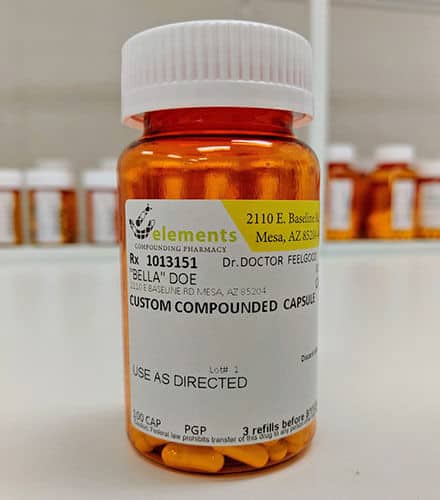Discovering the Devices Behind Fenbendazole and Its Effect on Animal Health
Fenbendazole is an extensively utilized anthelmintic recognized for its effectiveness versus different bloodsuckers. Its primary system involves the restraint of microtubule development, which disrupts crucial procedures in these pathogens. Beyond its antiparasitic buildings, fenbendazole additionally shows up to boost immune reactions and has anti-inflammatory advantages. Understanding these multifaceted effects can expose brand-new applications for pet health and wellness. Nevertheless, concerns remain concerning its complete possibility and safety and security account.
The Pharmacokinetics of Fenbendazole
The pharmacokinetics of fenbendazole, a widely made use of anthelmintic in veterinary medication, involves the research of its absorption, circulation, metabolic process, and excretion within animal systems. After administration, fenbendazole is quickly soaked up from the gastrointestinal tract, with peak plasma concentrations taking place within hours. Its circulation is influenced by variables such as tissue binding and lipid solubility, allowing it to pass through numerous tissues successfully. The drug goes through considerable metabolic process largely in the liver, where it is transformed right into active and inactive metabolites. These metabolites play a role in the medicine's general efficacy and safety profile. Excretion takes place mostly via feces, with a smaller sized percentage eliminated through pee. The half-life of fenbendazole differs among types, which affects dosing routines. Comprehending these pharmacokinetic buildings is essential for enhancing its restorative use and making certain efficient bloodsucker control in veterinary techniques.
Mechanisms of Action Versus Parasites
Fenbendazole exerts its antiparasitic effects primarily with the inhibition of microtubule development in bloodsuckers. This disturbance impacts their structural honesty and cellular functions, resulting in damaged power metabolism. Consequently, the medication efficiently compromises the survival and recreation of numerous parasitic organisms.
Inhibition of Microtubule Formation
Inhibition of microtubule formation stands for a crucial system where particular anthelmintic representatives, consisting of fenbendazole, exert their results on bloodsuckers. Fenbendazole binds to tubulin, a healthy protein that forms microtubules, disrupting the polymerization procedure essential for microtubule setting up. This interruption harms essential cellular features, including mitosis, intracellular transportation, and architectural stability. As microtubules play a critical function in maintaining the shape and feature of parasitic cells, their inhibition causes cell cycle apprehension and ultimate death of the bloodsucker. This system is particularly efficient versus nematodes, as their reliance on microtubules for flexibility and nutrient absorption makes them vulnerable to fenbendazole. As a result, the restraint of microtubule formation is a critical facet of fenbendazole's therapeutic efficacy in veterinary medication.
Disruption of Energy Metabolic Process
Interfering with basal metabolism is an additional essential device through which fenbendazole targets parasitic organisms. This anthelmintic alters the energy production paths within parasites, mostly impacting their ability to produce adenosine triphosphate (ATP) By hindering sugar uptake and interfering with mitochondrial function, fenbendazole restrictions the power sources essential for the survival and recreation of these organisms. Because of this, bloodsuckers become significantly vulnerable to ecological stress and anxieties and immune reactions. The interference in power metabolic process not only affects the bloodsuckers directly yet likewise decreases their capacity to absorb nutrients, additionally hindering their development - fenbendazole 222. On the whole, the interruption of basal metabolism stands for a fundamental element of fenbendazole's efficacy versus different parasitical infections, adding greatly to improved pet health end results
Potential Negative Effects and Safety Account
The possible side impacts and safety profile of fenbendazole warrant mindful factor to consider, especially in veterinary applications. While normally considered as risk-free, some animals might experience unfavorable reactions, consisting of gastrointestinal disturbances such as throwing up and looseness of the bowels. Additionally, neurological signs, although rare, have been reported in sensitive individuals, highlighting the demand for tracking during therapy.

Fenbendazole's safety in various types, including canines and felines, has been recorded, however dosage and duration of therapy must be very carefully taken care of to reduce risks. Expecting or breast feeding animals may also call for special interest, as the effects on establishing fetuses or nursing offspring are not totally understood.
Regular veterinary assessments can aid mitigate potential negative effects and guarantee the medicine is administered suitably. Subsequently, while fenbendazole is an efficient anthelmintic representative, caution regarding its side results is necessary for preserving pet wellness.

Fenbendazole's Impact on Immune Feature
Fenbendazole has been noted for its possible to regulate immune system feedbacks in pets. Its anti-inflammatory residential properties may add to boosted immune function, supplying a twin advantage in handling health (fenbendazole). Comprehending these results is important for examining fenbendazole's role in veterinary medication
Immune System Modulation

Anti-inflammatory Qualities
Anti-inflammatory effects stand for a significant aspect of fenbendazole's impact on immune feature. Research suggests that fenbendazole might lower the production of pro-inflammatory cytokines, which are essential in moderating inflammatory actions. By modulating these cytokines, fenbendazole can potentially relieve inflammation-related conditions in pets. This anti-inflammatory activity not only aids in managing signs and symptoms connected with numerous illness but also boosts total immune system efficacy. Additionally, its capability to advertise a balanced immune response assists prevent extreme inflammatory damage, which can result in chronic health concerns. Fenbendazole's duty in inflammation administration highlights its value in vet medication, supplying a double advantage of antiparasitic action and immune system support for animal wellness.
Applications Beyond Standard Parasitical Infections
While largely recognized for its performance versus numerous parasitical infections, fenbendazole has actually garnered attention for prospective applications yet traditional scope. Current studies recommend that fenbendazole might have valuable results on mobile health and wellness and immune response, making it a fascinating candidate for handling other health and wellness conditions in animals. For instance, its reported anti-inflammatory residential properties may provide relief for animals dealing with persistent inflammatory illness. In addition, some study indicates that fenbendazole might contribute in supporting the overall wellness of animals by boosting vitamins and mineral absorption and stomach health and wellness. Its potential as an adjunct treatment in cancer therapy has actually triggered rate of interest, as preliminary searchings for suggest it could inhibit tumor cell growth in specific contexts. These varied applications highlight fenbendazole's adaptability, urging more exploration right into its complex advantages for animal health and wellness beyond its traditional use as a deworming representative.
Future Research Study Instructions and Implications for Pet Wellness
The expedition of fenbendazole's possible applications has opened up brand-new opportunities for research study aimed at improving animal health. Future researches could concentrate on its efficiency versus a broader series of microorganisms, consisting of germs and infections, therefore increasing its role in veterinary medicine. The ramifications of fenbendazole's mechanisms, such as its influence on immune inflection, warrant even more examination to understand exactly how it can strengthen general health in numerous species.
In addition, study might explore optimal does and formulas to make best use of effectiveness while lessening possible side results. Checking out fenbendazole's collaborating effects with various other medications could bring about extra effective therapy procedures. Longitudinal researches assessing long-term outcomes in animals treated with fenbendazole can give useful understandings into its safety and security and performance. On the whole, the ongoing expedition of fenbendazole provides appealing possibility to improve animal health and wellness, necessitating a joint technique among researchers, vets, and pharmaceutical designers to promote advancements in this field.
Frequently Asked Questions
Can Fenbendazole Be Made Use Of in Livestock for Bloodsucker Avoidance?
The inquiry of whether fenbendazole can be made use of in animals for parasite prevention is pertinent, as manufacturers look see this for reliable therapies (fenbendazole 222). Research study indicates it might give advantages, yet appropriate standards and vet guidance are crucial for risk-free use
What Is the Recommended Dose of Fenbendazole for Different Pets?

Are There Any Kind Of Understood Medication Communications With Fenbendazole?
Existing knowledge indicates that fenbendazole may engage with certain medicines, possibly influencing see here their efficiency or metabolic rate. Vet experts suggest seeking advice from a veterinarian to assess individual animal cases and determine any possible interactions prior to administration.
Just How Does Fenbendazole Contrast to Various Other Antiparasitic Medications?
Fenbendazole is often contrasted to other antiparasitic medications based on effectiveness, range of task, and security accounts. It is preferred for its performance against a wide variety of parasites while typically exhibiting marginal side effects in pets.
Is Fenbendazole Effective Against Viral or Microbial Infections in Animals?
The effectiveness of fenbendazole against viral or microbial infections in pets stays unproven. Research mostly focuses on its antiparasitic buildings, with minimal evidence sustaining any kind of duty in treating non-parasitic infections in veterinary medicine.